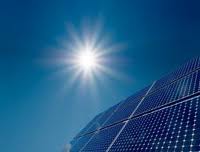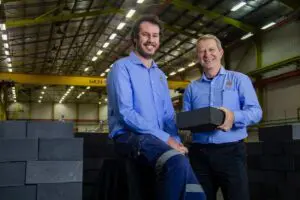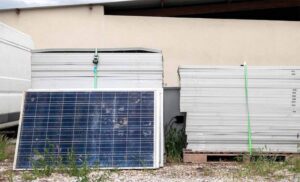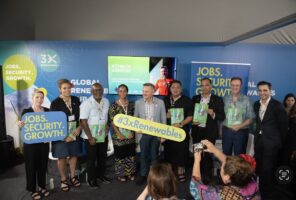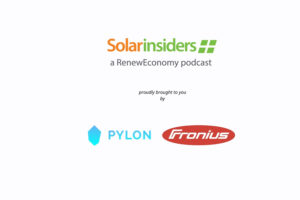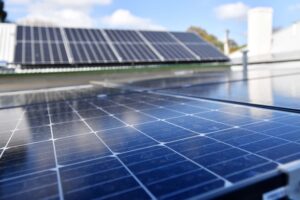Infigen Energy is about to start construction of a solar PV and battery storage plant that it says will become the first such hybrid facility to operate as despatchable generation within Australia’s wholesale electricity market, the National Electricity Market (NEM).
The project will involve the construction of a 1MW solar PV plant near Bungendore with an equivalent amount of battery storage. Approvals for the facility were received recently and construction will begin with a few weeks.
The first stage will be around 200kW, making it about the smallest facility despatching energy into the NEM, but it will be gradually expanded as Infigen Energy experiments with different construction and mounting techniques, and various storage applications.
“It a very small plant with potentially some very profound outcomes,” David Griffin, the company’s general manager of development, told RenewEconomy in an interview. “We feel there is a reasonable prospect that battery storage costs will follow the price path of solar modules. If that happens, we are going to be talking about a very different NEM.”
The idea of the plant followed Infigen Energy’s application for a grant under the federal Government’s Solar Flagships scheme. Its project, a joint venture with global solar manufacturing giant Suntech, was shortlisted but did not win the grant.
Still, Griffin said the company learned a lot through the process. One of those key learnings was the need to bring down the “balance of system” costs which in Australia accounts for more than two thirds of the cost of solar plants. Finding the best ways to construct the plants, and to add storage are the keys to that.
“The price of solar modules is falling dramatically, but we’ve got to get the balance of plant costs down too. This is to work out the smartest ways of doing that,” Griffin said. This can only be achieved by “learning by doing” and experimenting with different construction techniques, including mountings for the modules. The company has tendered for suppliers of battery storage.
The plant will be located at the heart of Infigen Energy’s growing Capital renewable energy hub, which already includes the Capital and Woodlawn wind farms, as well as the proposed Capital 2 wind farm extension and the Capital solar project.
While the wind farm extension will likely need a power purchase agreement to be built, and the 40MW solar project (part of the original Flagships proposal) will seek a grant from the Australian Renewable Energy Agency, Infigen Energy will fund the solar/battery hybrid with its own resources.
Griffin said the output from the solar PV array and batteries will be managed from the company’s dispatch operations in Sydney, adding to its knowledge of how these systems work and fit in to the NEM. Initially, the battery will have one hour storage, enabling it to smooth over production and extend output further into evening peaks, but the company was not yet certain whether this was the optimum amount.
The project is significant, because if – as is widely expected – that the future of grids is in distributed generation, where plants are located near the source of demand and with storage options, then the justification for massive investment in poles and wires is greatly reduced. Particularly when demand is falling.

